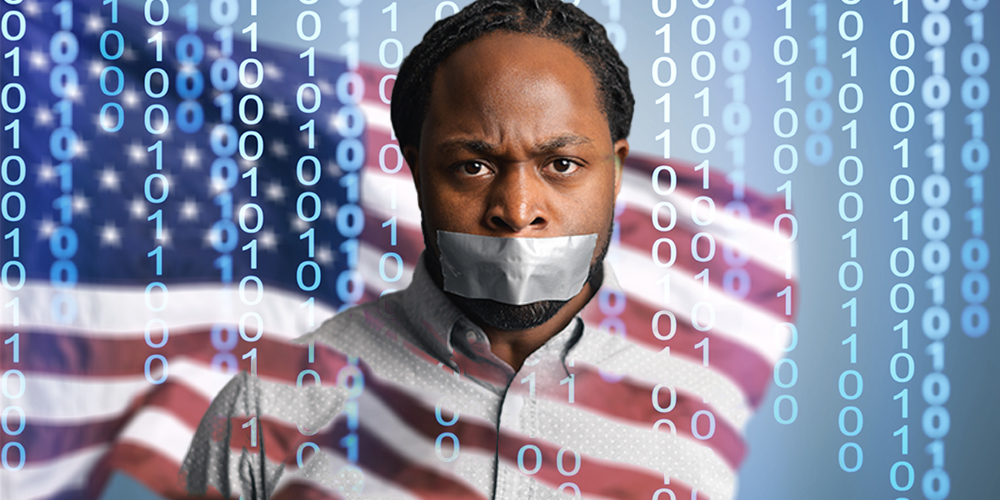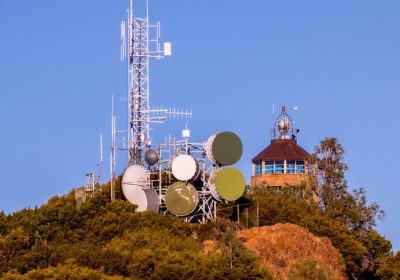The battle for free speech in healthcare has taken a troubling turn, with government agencies using taxpayer dollars to fund efforts that shape public discourse and suppress dissenting voices.
Listen to the audio version of this article:
THE TOPLINE
- USAID has provided over $472 million to Internews, a nonprofit that claims to fight misinformation but actively influences public discourse and restricts certain viewpoints.
- Federal agencies, including the NSF and CDC, fund AI-driven content moderation and “prebunking” strategies to suppress dissenting opinions on health, politics, and climate change.
- These censorship efforts limit public access to alternative health information and create a system where only government-approved narratives are promoted.
One of the latest revelations in the war for free speech concerns USAID’s funding of Internews, a nonprofit organization that, under the guise of “combating misinformation,” is actively influencing what information the public can access about health and other critical issues.
Internews and the Government’s Role in Censorship
Internews has reportedly received over $472 million from USAID, despite evidence suggesting that it supports censorship and narrative control rather than journalistic independence. At the forefront of this effort is Internews’ CEO, Jeanne Bourgault, who has openly advocated for mechanisms to steer public perception. She spoke at the World Economic Forum about how to address “disinformation,” and she emphasized the need to push advertising dollars toward content deemed as “good news,” a strategy eerily reminiscent of Orwellian thought control.
Bourgault’s statements are particularly alarming given her track record in government-funded initiatives that blur the line between journalism and propaganda. She praised the initial “beautifully unified” COVID messaging that resulted in high vaccine enthusiasm but lamented the rise of vaccine hesitancy when “mixed information” surfaced. This perspective reveals a fundamental misunderstanding of journalism’s role—reporting balanced facts from a spectrum of sources rather than curating messages from limited sources to achieve predetermined policy goals.
If the press exists to promote unity around specific narratives rather than foster informed debate, it ceases to be free press at all. That this effort is being bankrolled by taxpayers should concern every American who values the First Amendment.
A Broader Pattern of Government-Funded Suppression
Internews is just one piece of much larger, government-driven, globe-spanning censorship efforts. From fact-checking initiatives to AI-driven content moderation, federal agencies have in recent years funneled millions into projects designed to manage online discourse.
On February 14, in a speech at a global security conference in Munich, Germany, Vice President JD Vance pointed to chilling examples from Europe of censorship gone amok:
I look to Brussels, where EU Commission commissars warned citizens that they intend to shut down social media during times of civil unrest: the moment they spot what they’ve judged to be “hateful content.” Or to this very country where police have carried out raids against citizens suspected of posting anti-feminist comments online as part of ‘combating misogyny’ on the internet…I believe deeply that there is no security if you are afraid of the voices, the opinions and the conscience that guide your very own people.

Then there are the efforts of our own government. We’ve reported previously how the National Science Foundation (NSF) has funded artificial intelligence programs aimed at curbing what it deems as misinformation. A report from the House Judiciary Subcommittee on the Weaponization of the Federal Government highlighted how these AI tools are being developed to monitor, shadowban, and suppress views that contradict official narratives on health, politics, and climate change.
Government agencies also pursue strategies like “prebunking,” a process meant to condition the public against certain viewpoints before they even encounter them. A paper from several CDC scientists in The Lancet Public Health recommends regulatory and legal interventions to penalize medical professionals who disseminate so-called misinformation. This isn’t public health—it’s thought control.
Why Free Speech in Health Matters
ANH has long fought against censorship that limits access to natural health information. Government-aligned efforts to suppress discussion on vitamins, minerals, and non-pharmaceutical treatments mirror the suppression of alternative COVID perspectives. The issue goes way beyond one type of medical intervention—vaccines—that get a disproportionate amount of attention. It’s about whether people have the right to explore all available health options without interference from a government-backed censorship apparatus. That’s why our soon-to-be-issued petition against the FDA that aims to open up the market to hundreds of health claims made by the government’s own health agencies is so crucial.
The battle for health freedom is fundamentally a battle for free speech. The same institutions that claimed to follow “the science” during COVID now openly endorse regulating speech under the banner of misinformation control. But truth cannot be dictated—it must be debated, explored, and scrutinized.
Time to Take a Stand
The revelations about Internews and USAID funding are just the tip of the iceberg. The government’s multi-pronged approach to controlling information spans AI-driven censorship, financial pressure on media outlets, and legal threats against dissenting professionals. If we allow this system to persist, the erosion of free speech will continue until only state-approved narratives remain. We will be monitoring the new Administration’s efforts in this regard very carefully given its declared interest in restoring free speech while committing to AI.
It’s time to demand accountability. Taxpayer dollars should not fund programs that silence legitimate debate. Public health decisions must be made transparently, with access to all perspectives—not just those sanctioned by government agencies and their corporate partners.
Please share this article widely within your networks!




The CDC is a private corporation. It has never been a federal agency ever. They made 4.6 billion dollars last year for their investors. They are listed on the new York stock exchange. You should look up their primary investors (it’s scary). They hold patents on not only vaccines but viruses (though holding patents on viruses is illegal). The CDC had to change their name in the 1970s because of the PR fallout due to the fact that they used to be called “The United States Health Services”. As the United States Health Services they engineered and delivered the immoral and illegal Tuskegee Syphilis experiments on unsuspecting African Americans from the 1930s to the 1970s. No one was ever charged or fined or went to jail because of their nefarious garbage. Their organization hasn’t changed their philosophies one bit, ever. We have all been lied to, for far too long.